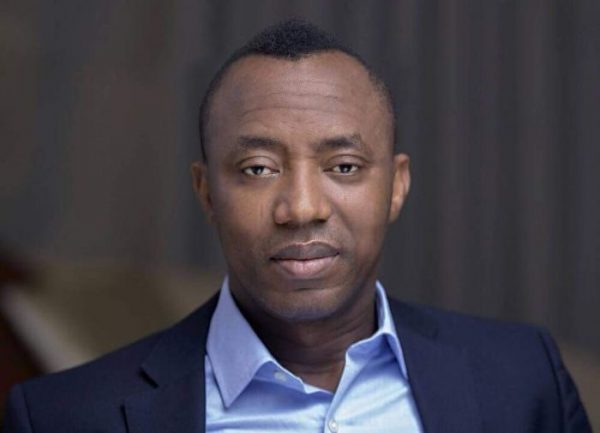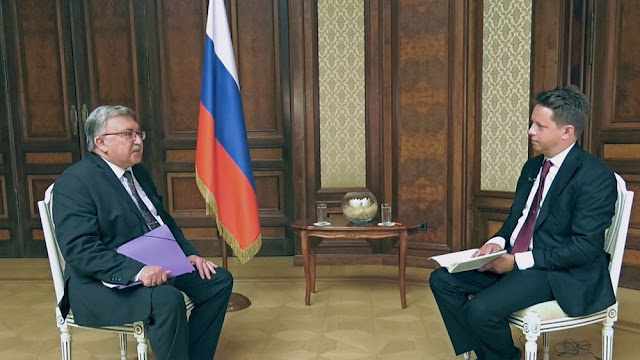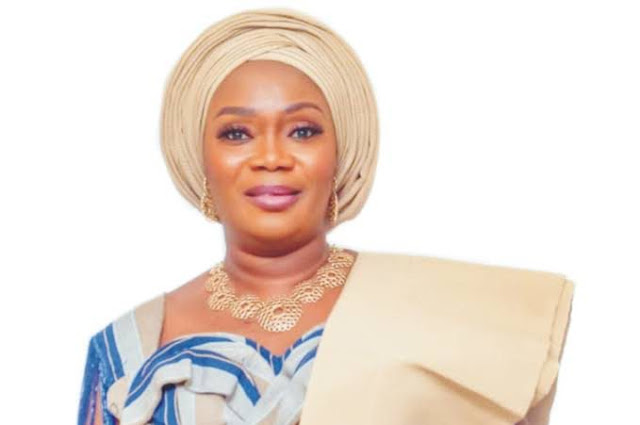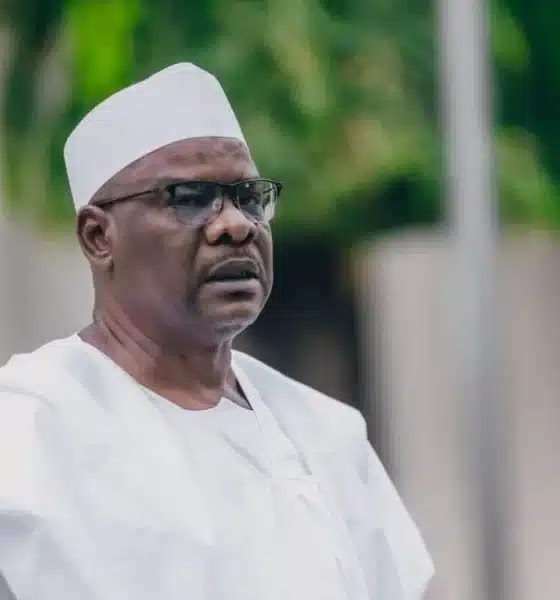In a recent development that has sparked widespread controversy, Nigerian activist and publisher of Sahara Reporters, Omoyele Sowore, has publicly criticized the Department of State Services (DSS) for allegedly pressuring the social media platform X to deactivate his account. The accusation, which has raised concerns about freedom of speech and the state of democracy in Nigeria, was reported by Politics Nigeria and has since ignited a firestorm of reactions from Sowore’s supporters, civil society organizations, and concerned citizens. This article delves into the details of the incident, its implications for Nigeria’s political landscape, and the broader context of government censorship in the digital age.
The Allegation: DSS Targets Sowore’s Social Media Presence
According to reports from Politics Nigeria, Sowore took to his X account to reveal that the DSS, Nigeria’s secret police, had contacted the leadership of X, a platform known for its commitment to free expression, with a request to suspend or deactivate his account. Sowore, a vocal critic of the Nigerian government and a prominent figure in the fight against corruption and human rights abuses, stated that the move was a deliberate attempt to silence his activism and suppress his ability to communicate with his audience.
The activist’s claims are particularly alarming given his history of confrontations with the Nigerian government. Sowore, who ran for president in the 2019 and 2023 elections under the African Action Congress (AAC), has been a consistent thorn in the side of Nigeria’s political establishment. His platform, Sahara Reporters, has exposed numerous cases of corruption, mismanagement, and abuse of power by government officials, making him a target for those in authority. Sowore’s revelation about the DSS’s alleged request to X underscores the ongoing tension between the government and activists who leverage digital platforms to advocate for change.
Sowore’s Response: A Defiant Stand Against Censorship
In his characteristic fiery style, Sowore did not mince words in condemning the DSS’s alleged actions. He described the move as a desperate attempt by the government to stifle dissent and curb the influence of activists who use social media to mobilize public opinion. Sowore emphasized that X, unlike other platforms, has become a critical space for Nigerians to express their views freely, especially in a country where traditional media outlets are often subject to government control or influence.
“This is a direct attack on free speech,” Sowore reportedly stated on his X account. “The DSS wants to silence me because I refuse to bow to their intimidation. They think deactivating my account will stop the truth from coming out, but they are mistaken. The Nigerian people will not be silenced, and neither will I.”
Sowore’s defiance resonates with many Nigerians who view him as a symbol of resistance against oppression. His statement also highlights the growing role of social media in shaping political discourse in Nigeria, where platforms like X have become battlegrounds for ideological conflicts between the government and its critics.
The Context: Nigeria’s Strained Relationship with Free Speech
To fully understand the significance of Sowore’s allegations, it is essential to examine the broader context of Nigeria’s relationship with freedom of expression. Nigeria, Africa’s most populous nation, has a complex history of balancing democratic ideals with authoritarian tendencies. While the country returned to civilian rule in 1999 after decades of military dictatorship, successive governments have faced criticism for their handling of dissent and press freedom.
The DSS, in particular, has been accused of overstepping its mandate by targeting journalists, activists, and ordinary citizens who criticize the government. In recent years, there have been several high-profile cases of individuals being arrested or harassed for their social media posts. For instance, in 2020, the Nigerian government faced international backlash for its heavy-handed response to the #EndSARS protests, which were largely organized and amplified through social media platforms like X. During the protests, the government was accused of attempting to restrict access to social media and censoring accounts critical of its actions.
Sowore himself is no stranger to such repression. In 2019, he was arrested by the DSS for organizing the #RevolutionNow protests, which called for an end to corruption and bad governance in Nigeria. He was detained for several months and faced charges of treasonable felony, a move widely condemned by human rights organizations as an attempt to criminalize dissent. Although Sowore was eventually released, his case remains a stark reminder of the risks faced by activists in Nigeria.
The alleged request by the DSS to deactivate Sowore’s X account fits into this broader pattern of government efforts to control the narrative in the digital space. As more Nigerians turn to platforms like X to voice their frustrations with issues such as economic hardship, insecurity, and corruption, the government appears to be intensifying its efforts to monitor and regulate online activity.
The Role of X in Nigeria’s Political Discourse
X has emerged as a critical platform for political engagement in Nigeria, particularly among young people who make up a significant portion of the country’s population. Unlike traditional media, which is often subject to editorial gatekeeping or government influence, X allows users to share their views directly with a global audience. This democratization of information has empowered activists like Sowore to bypass traditional gatekeepers and communicate directly with the public.
However, this freedom has also made X a target for governments seeking to control the flow of information. In 2021, the Nigerian government temporarily banned X after the platform deleted a tweet by then-President Muhammadu Buhari that was deemed to violate its policies. The ban, which lasted for several months, was widely seen as an attempt to suppress dissent and limit the ability of Nigerians to organize online. The eventual lifting of the ban came only after negotiations between the government and X’s leadership, raising concerns about the platform’s independence in the face of government pressure.
Sowore’s allegations about the DSS’s request to deactivate his account have reignited fears that the Nigerian government is once again attempting to exert control over X. If true, the move would represent a significant escalation in the government’s efforts to silence critics in the digital space.
Reactions: Public Outrage and Calls for Accountability
The news of the DSS’s alleged attempt to deactivate Sowore’s account has sparked widespread outrage among Nigerians, particularly on X, where users have rallied behind the activist using hashtags such as #StandWithSowore and #FreeSpeechNaija. Many have expressed concern that the government’s actions are a direct threat to democratic values and the right to free expression.
Civil society organizations have also weighed in on the issue. Amnesty International Nigeria called for an immediate investigation into the DSS’s actions, describing the alleged request as “a blatant violation of the right to freedom of expression guaranteed under the Nigerian Constitution and international human rights law.” The organization urged the government to respect the rights of citizens to express their views without fear of reprisal.
Similarly, the Socio-Economic Rights and Accountability Project (SERAP) issued a statement condemning the DSS’s alleged actions and calling on the government to uphold its commitments to democratic principles. “The attempt to silence Omoyele Sowore through the deactivation of his X account is a dangerous precedent,” SERAP stated. “The government must stop targeting activists and journalists who use social media to hold those in power accountable.”
On X, users have shared personal stories of how Sowore’s activism and Sahara Reporters have shed light on issues that would otherwise have been ignored by mainstream media. Many have praised Sowore for his courage in standing up to the government, with some calling him a “voice for the voiceless.”
The DSS’s Silence and the Need for Transparency
As of the time of writing, the DSS has not issued an official response to Sowore’s allegations. This silence has only fueled speculation and distrust among Nigerians, many of whom believe that the agency’s lack of a denial is tantamount to an admission of guilt. The absence of a clear statement from the DSS has also raised questions about the agency’s accountability and its role in a democratic society.
Transparency is critical in addressing allegations of this nature. If the DSS did indeed contact X to request the deactivation of Sowore’s account, such an action would have serious implications for Nigeria’s democracy. It would suggest that the government is willing to go to great lengths to suppress dissent, even if it means violating the rights of its citizens.
The Broader Implications: Digital Censorship in the Global Context
Sowore’s case is not an isolated incident but part of a global trend of governments seeking to control online spaces. From China’s Great Firewall to Turkey’s periodic social media bans, authoritarian regimes around the world have increasingly targeted digital platforms as a means of maintaining power. Even in democracies, governments have been known to pressure tech companies to remove content or suspend accounts deemed problematic.
In Nigeria, the government’s actions reflect a growing unease with the power of social media to amplify dissenting voices. As more Nigerians gain access to the internet and social media platforms, the ability of activists like Sowore to mobilize public opinion has grown exponentially. This has made the digital space a contested arena, with governments and activists vying for control of the narrative.
The alleged attempt to deactivate Sowore’s X account also raises questions about the role of tech companies in protecting free speech. X, which has positioned itself as a champion of open discourse, faces a delicate balancing act between complying with local laws and upholding its commitment to free expression. The platform’s response to the DSS’s alleged request will likely set a precedent for how it handles similar situations in other countries.
Sowore’s Legacy: A Catalyst for Change
Regardless of the outcome of this particular controversy, Omoyele Sowore’s role as a catalyst for change in Nigeria cannot be overstated. Through Sahara Reporters and his activism, he has consistently challenged the status quo and given a voice to millions of Nigerians who feel marginalized by the political system. His ability to leverage social media to amplify his message has made him a formidable force in Nigeria’s political landscape.
Sowore’s defiance in the face of alleged government censorship serves as a rallying cry for those who believe in the power of free speech to drive social change. His refusal to be silenced, even in the face of intimidation, underscores the resilience of Nigeria’s activist community and the enduring importance of platforms like X in the fight for justice and accountability.
The Way Forward: Protecting Free Speech in Nigeria
The allegations against the DSS highlight the urgent need for reforms to protect freedom of expression in Nigeria. Civil society organizations, international partners, and concerned citizens must continue to pressure the government to uphold its constitutional and international obligations to protect free speech. This includes ensuring that agencies like the DSS operate within the bounds of the law and are held accountable for any actions that infringe on citizens’ rights.
Furthermore, tech companies like X must remain vigilant in defending their users’ right to free expression. This may involve strengthening policies to resist government pressure and investing in mechanisms to protect activists and journalists who face censorship or harassment.
For Sowore and other activists, the fight for free speech is far from over. As Nigeria navigates its complex political and social challenges, the role of digital platforms in amplifying marginalized voices will only become more critical. Sowore’s case serves as a stark reminder of the stakes involved in the battle for free expression and the need for continued vigilance in defending democratic values.
Conclusion
The alleged attempt by the DSS to deactivate Omoyele Sowore’s X account represents a troubling escalation in the Nigerian government’s efforts to control the digital space. Sowore’s defiance and the public’s response underscore the importance of social media as a tool for activism and accountability in Nigeria. As the controversy unfolds, it will serve as a litmus test for the state of democracy in Nigeria and the resilience of platforms like X in the face of government pressure. For now, Sowore remains a powerful symbol of resistance, and his fight for free speech continues to inspire millions of Nigerians to demand a more just and transparent society.






